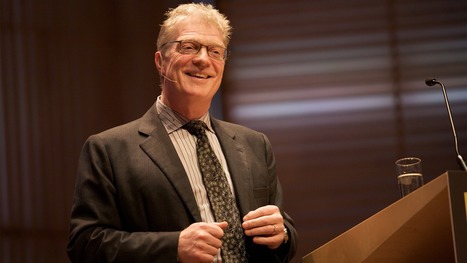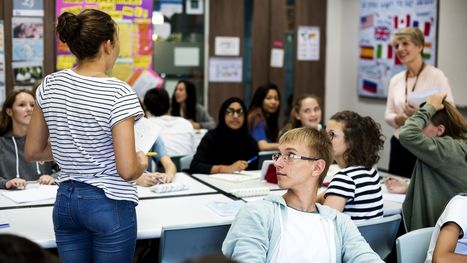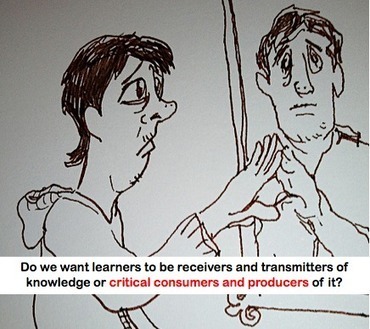The real principle on which human life is based is organic growth and development,” Robinson said. It’s based on the need to invent your own life.” But the education system is not set up to allow for that kind of organic development, although Robinson acknowledges that many educators are doing their best to protect this form of learning. “They’re doing wonderful work because they believe in kids and the work, but they’re doing it against a headwind,” he said.
Part of the problem is the multitude of opinions and lack of clarity on exactly what it is an education should do. Debates about how to improve education will continue to rage because at a fundamental level participants don’t agree about why (or if) kids should go to school. Robinson firmly believes that creativity is a central element of what sets humans apart from other forms of life on earth and so educators’ mission should be to bring out the unique creative energy within each child.
Robinson believes education is “to enable students to understand the world around them, and the talents within them, so that they can become fulfilled individuals and active, compassionate citizens.” He doesn’t deny that learning information about the world is important, but he says it’s equally important for students to understand their own talents, motivations and passions if they are going to lead lives that satisfy them. The current system of conformity and compliance leaves no space for this type of self-exploration.
Learn more / En savoir plus / Mehr erfahren:
https://www.scoop.it/t/21st-century-learning-and-teaching/?&tag=Sir+Ken+Robinson
Via Gust MEES



 Your new post is loading...
Your new post is loading...
















The real principle on which human life is based is organic growth and development,” Robinson said. It’s based on the need to invent your own life.” But the education system is not set up to allow for that kind of organic development, although Robinson acknowledges that many educators are doing their best to protect this form of learning. “They’re doing wonderful work because they believe in kids and the work, but they’re doing it against a headwind,” he said.
Part of the problem is the multitude of opinions and lack of clarity on exactly what it is an education should do. Debates about how to improve education will continue to rage because at a fundamental level participants don’t agree about why (or if) kids should go to school. Robinson firmly believes that creativity is a central element of what sets humans apart from other forms of life on earth and so educators’ mission should be to bring out the unique creative energy within each child.
Robinson believes education is “to enable students to understand the world around them, and the talents within them, so that they can become fulfilled individuals and active, compassionate citizens.” He doesn’t deny that learning information about the world is important, but he says it’s equally important for students to understand their own talents, motivations and passions if they are going to lead lives that satisfy them. The current system of conformity and compliance leaves no space for this type of self-exploration.
Learn more / En savoir plus / Mehr erfahren:
https://www.scoop.it/t/21st-century-learning-and-teaching/?&tag=Sir+Ken+Robinson
https://www.euglobalservices.com/
Renew Or Update Your Licence - Licence Driving Services
Renew or update your driving licence online, rapid support and SMS notifications. Mobile friendly and lost licence protection, fully legal to drive once approved. Explore Our Services. Check Application Pricing. Multiple Payment Options.
Renew Licence · Lost Licence · Change Your Address
https://www.euglobalservices.com/about-us/buy-uk-driving-licence/